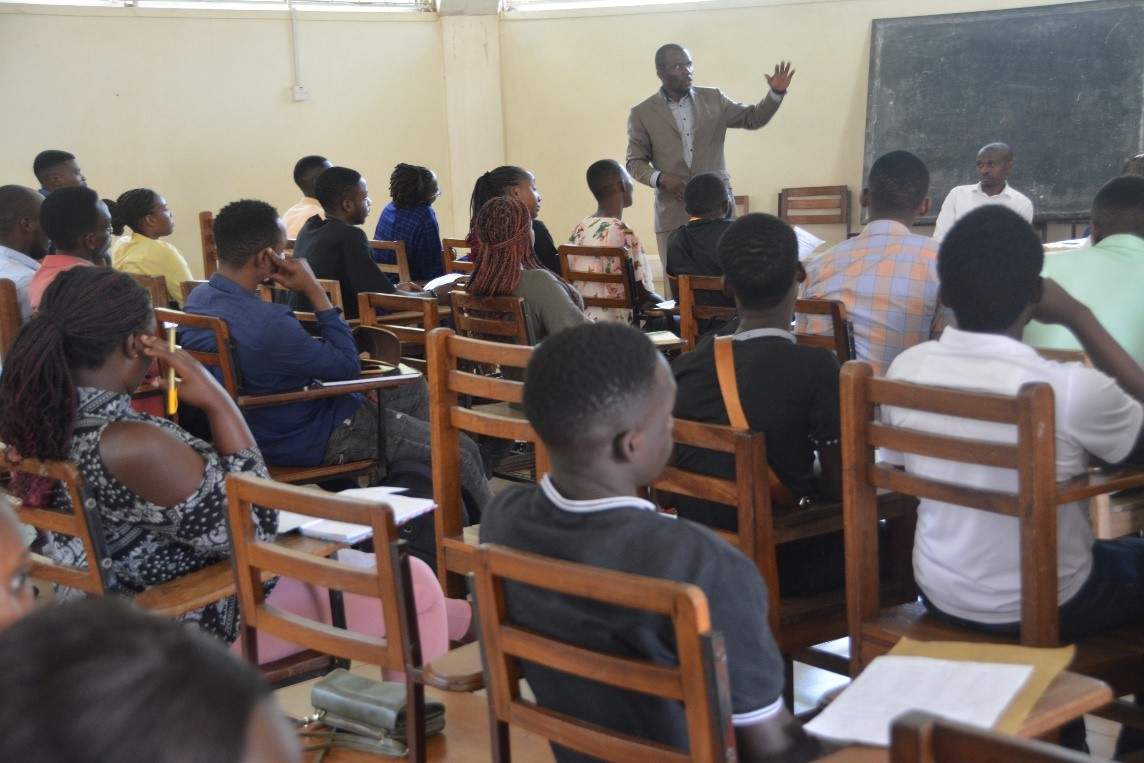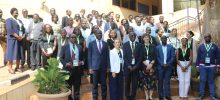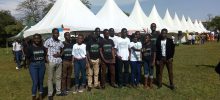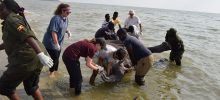The Best Test of Life is when you leave the Gates of Makerere, students counseled.
The Department of Livestock and Industrial Resources (LIR) in the School of Veterinary Medicine and Animal Resources (SVAR) at the College of Veterinary Medicine, Animal Resources and Biosecurity (CoVAB) is committed to ensuring that the new students get the best experience and gain the needed skills for the competitive world of work.
Dr. Dorothy Nampanzira, HoD, Livestock, and Industrial Resources, COVAB addressed students
Dr. Dorothy Nampanzira, the Head of Department LIR made this affirmation at the orientation meeting held at the college, where several staff from the department addressed the students, sharing their experiences and commitments towards giving them their best. The programs offered under the LIR department are Bachelor of Animal Production Technology & Management Technology (BAPT), Bachelor of Livestock Industrial Business (BILB), and MSc. Livestock Development, Planning & Management.
She assured the students many of whom had not made the programs they were admitted to as their first choice, that the programs were revised and very relevant to the prevailing situation in the country and assured them of having a successful career once they got focused and grabbed the opportunity at hand wholesomely.

A section of the students that attended the orientation meeting
The orientation covered areas like detailed explanations of the programs offered in the department which focuses on improving farm production and value addition of livestock products and wildlife resources, through teaching and learning, research, outreaches, internships, and peer-to-peer learning exposures. It also covered the teaching and learning methods including lectures, practicals, group discussions, illustrations, seminars, and online blended learning. The students were encouraged to appreciate the learning outputs and learn the aspect of self-study given the wide range of readily available information.
Students were urged to develop research skills early enough by becoming curious, gaining perseverance, becoming critical thinkers, and learning to collaborate with colleagues and students.
Story by Musinguzi Harriet.







